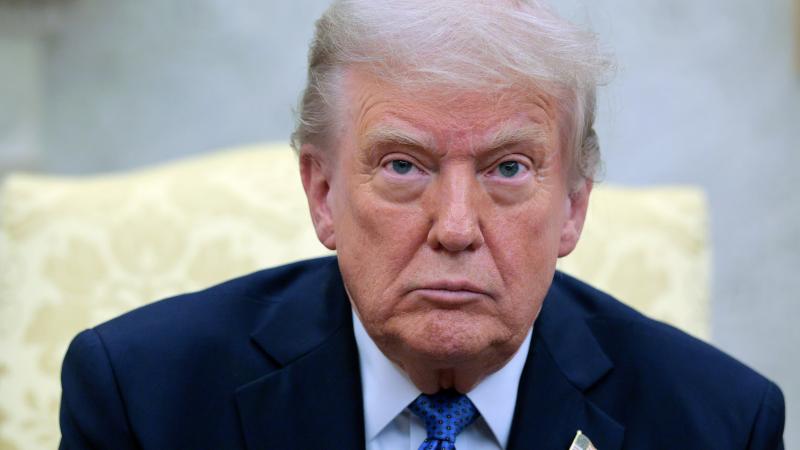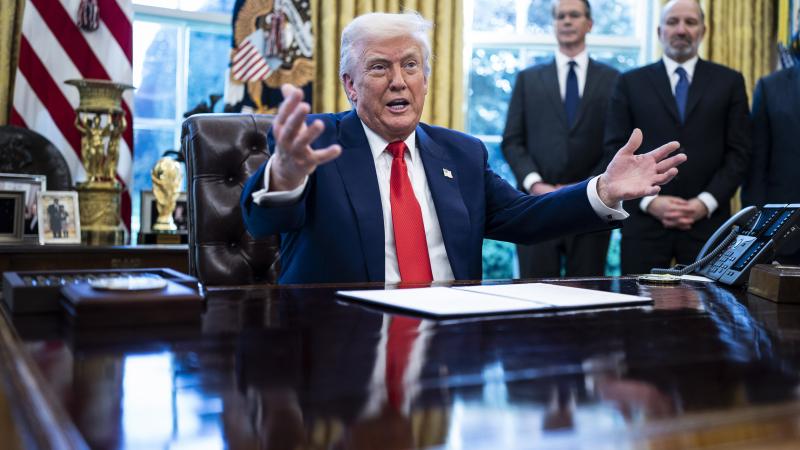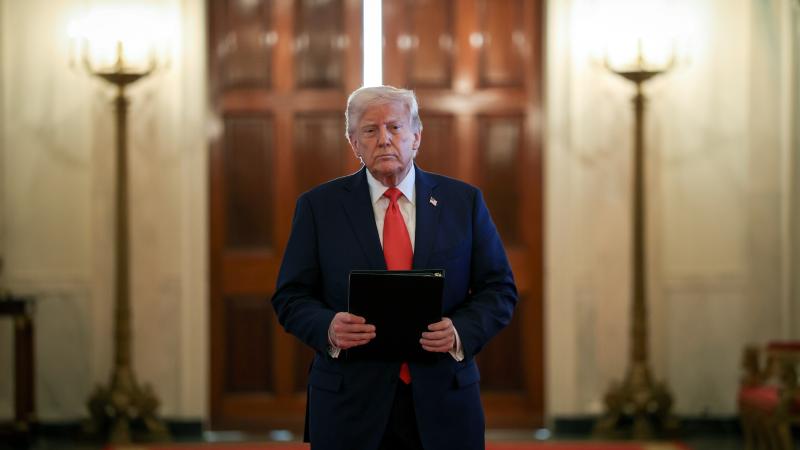Voters focused on prices, tariffs as Trump wraps up first 100 days
The Center Square poll found immigration issues, which helped put Trump in the White House, have fallen in importance for voters.
American voters are focused on prices, tariffs and illegal immigration as President Donald Trump approaches the 100-day mark of his second term in the White House, which is Tuesday.
The Center Square Voter's Voice poll found that immigration issues, which helped put Trump in the White House, have fallen in importance for voters. Trump has made progress on issues at the border since taking office, which voters have recognized. The poll found that 47% of those surveyed said federal policy on immigration and border security has "gotten better," compared to 32% who say it has "gotten worse."
"Immigration has become a second-tier issue in terms of importance; things like inflation [and] tariffs and trade have knocked it out of its spot," said David Byler, head of research at Noble Predictive Insights.
Concerns about inflation and high prices remain a top issue for voters, with 41% saying it was among their top three issues. And it remains a weak point for Trump, who promised to tame inflation and bring down prices on the campaign trail. The newest issue that voters are worried about is tariffs and international trade, with 33% of voters reporting it was among their top three issues. Illegal immigration was at 26%, followed by the economy and jobs at 25%. That was tied with concerns about government corruption. Healthcare stood at 21% and affordable housing at 15%.
After that, it was high taxes (14%), national debt (13%), national security (13%), federal rollback of DEI policies (12%), abortion rights (10%), climate change (9%), education (9%), stock market instability (9%), other (4%), and at the bottom was race relations at 3%.
The poll question showed voters are more focused on pocketbook issues than social ones, with concerns about prices and tariffs at the top. That presents Trump with challenges as he seeks to re-order global trade. Trump announced a slate of tariffs on April 2, which he called "Liberation Day" for American trade. Seven days later, on April 9, he paused nearly all of those higher rates that Trump calls reciprocal. Trump said the pause would last 90 days as his trade team talks with more than 75 other nations. However, Trump maintained a 10% baseline tariff and a 145% import duty on goods from China.
Economists, businesses, and a growing number of publicly traded companies have warned that tariffs could push up prices on a large swath of consumer products. Trump has said he wants to use tariffs to bring back manufacturing jobs lost to lower-wage countries in decades past, shift the tax burden away from U.S. families and pay down national debt.
Many companies and industry groups have raised price concerns even for products made in the U.S. because tariffs on imported raw materials could boost prices.
A tariff is a tax on imported goods. The importer pays the tax and can either absorb the loss or pass the cost on to consumers through higher prices.
The poll was conducted by Noble Predictive Insights from April 15-18, 2025, and surveyed registered voters nationally via an opt-in online panel and text-to-web cell phone messages. The sample included 2,527 respondents, comprised of 1,089 Republicans, 1,187 Democrats, and 251 True Independents, which Noble Predictive defines as independents who chose neither when asked if they lean toward one of the major parties.
The poll weighted each party – Republicans, Democrats, and True Independents – independently. In other words, the Republican subsample is weighted so it matches the national Republican population, and the same is true for Democrats and True Independents. Additional weighting variables include age, region, gender, education, and race/ethnicity.
The margin of error was +/- 2.0%.















